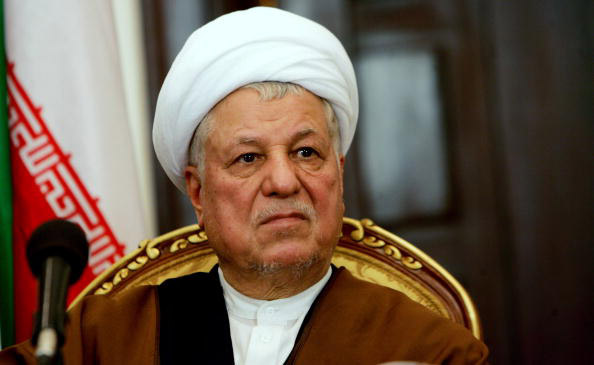Australia/Israel Review
Rafsanjani the “moderate”
Feb 6, 2017 | Michael Rubin

Michael Rubin
Former Iranian President Ali Akbar Hashemi Rafsanjani died of a heart attack on January 8 at the age of 82. No sooner was his death announced then the whitewash of his record bordering on hagiography started pouring in. The New York Times Teheran bureau chief, for example, tweeted, “The death of Rafsanjani… is a major blow to moderates and reformists in Iran.” Reuters described him likewise. National Public Radio labelled him “a leading voice for reform.” The US State Department remembered him as a “prominent figure.”
The whitewashing of Rafsanjani’s record is akin to praising Pol Pot for improved statistics on eyesight in Cambodia, Fidel Castro for free health care, or Jim Jones for raising the prominence of the Kool-Aid brand.
Rafsanjani signed off on attacks like the 1994 bombing of the Jewish cultural centre in Buenos Aires and assassinations of Iranian dissidents worldwide. He not only helped birth Iran’s covert nuclear weapons program but, on December 14, 2001, speculated that it could be for offence rather than defence since, unlike Israel, Iran has strategic depth to absorb a retaliatory strike. While he was willing to talk to Americans and Europeans, this had less to do with a desire for rapprochement than a recognition that dialogue could relieve economic pressure on the Islamic Republic and win it what it needed for the fulfilment of its indigenous military programs.
Was Rafsanjani a moderate or even reformer? Too often, diplomats and journalists analyse Iranian politics along a single spectrum ranging from hardline to reform. In reality, it is useful to think about the Islamic Republic’s politicians as falling between two axes: one with regard to social attitudes and tolerance and the other with regard to a belief in state-centred economies versus economic liberalism. Rafsanjani sought to reduce the centralised command structure of Iran’s economy, so he might have leaned more toward economic pragmatism. Even during his presidency, though, he was unsuccessful in implementing significant economic reform. When it came to social reform, however, Rafsanjani’s more moderate rhetoric did not translate into any desire or real effort to blunt the edge or fervour of the Islamic Revolution.
However, his death and the hagiography accompanying it does provide a “teachable moment.” Why is it that officials and analysts feel the need to find significance to factionalism among adversaries? In the Iranian context, this errs because it assumes that the spectrum from reform to hardline among Islamic Republic politicians is the be-all and end-all of political debate and existence. The Guardian Council, however, exists to limit political discourse and so – if Iranian presidential campaigns are any indication – what we see as a spectrum between reformers and hardliners represents only about one or two percent of the true Iranian political spectrum.
Ninety-eight percent of would-be candidates, let alone Iranians themselves, are too liberal for representation in the system. Another way to think about that is that if Rafsanjani was a moderate or voice of reform, then moderation in the Islamic Republic includes an embrace of incitement to genocide, assassination, torture and terrorism. It is this belief in the meaningfulness of factionalism that can lead to destructive policies. Jake Sullivan, Secretary of State Hillary Clinton’s chief foreign policy adviser, justified Clinton’s outreach to Iran in the belief that President Hassan Rouhani represented a Deng Xiaoping moment, in which an embrace of the reformers could lead to their ultimate triumph against hardliners. History shows it did not happen in China and it also enabled Iran’s good cop-bad cop strategy.
The desire to find moderation and meaning within factional struggles expands beyond just Iran. Talk to European or even American diplomats who work in the Middle East about Hezbollah or Hamas and they will describe a nuanced view that divides the movements into hardline and more pragmatic factions. The fact that those moderate Hamas factions still embrace a covenant that calls for genocide against Jews is left unsaid. Likewise, Track II dialogue proponents with North Korea justify their actions in the fact that there are more moderate officials in North Korea who can perhaps bring change.
Moral clarity is important. Diplomats should define moderation consistently: Moderates neither engage in terrorism nor endorse it. They do not seek to wipe other nations of the face of the earth. They do not preach religious hatred. Relative moderation should not be a consideration for accepting it – this only legitimises different flavours of extremism. Rafsanjani was a corrupt man – he died Iran’s richest man and among the world’s wealthiest as well – and he had much blood on his hands. His removal from the Iranian political scene should also be a wake-up call to recognise just how easily the desperation to see moderation where little to none exists leads to ineffective and self-destructive policies.
Dr. Michael Rubin is a Resident Scholar at the American Enterprise Institute specialising in the Middle East, Turkey, Iran and US diplomacy. His latest book is Dancing with the Devil: The Perils of Engaging Rogue Regimes (Encounter Books, 2015). © Commentary magazine (www.commentarymagazine.com), reprinted by permission, all rights reserved.
Tags: Iran






